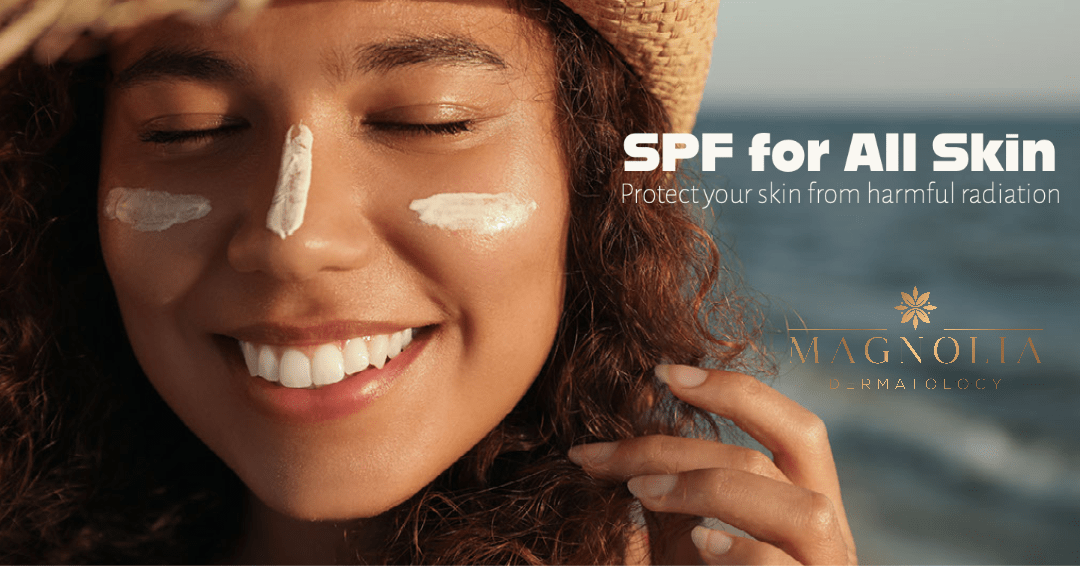SPF for All Skin
The question of whether darker or lighter skin requires more powerful sunscreen is one that has been asked many times. Unfortunately, the answer is more complex than one might think, as several factors must be considered.
Firstly, it is important to understand that sunscreen works by absorbing or reflecting the sun’s harmful ultraviolet (UV) rays. These rays can cause damage to the skin, including sunburn, premature aging, and even skin cancer. Therefore, sunscreen can be measured in terms of its Sun Protection Factor (SPF), which indicates the amount of protection it provides against UVB rays and the type of UV rays that cause sunburn.
It is a common misconception that people with darker skin do not need to wear sunscreen because their skin is naturally more resistant to the sun. While it is true that darker skin contains more melanin, which provides some protection against UV rays, this protection is not sufficient on its own. In fact, people with darker skin can still get sunburn and other types of sun damage and are at risk for skin cancer, just like people with lighter skin.
So, does darker or lighter skin require more powerful sunscreen? The answer is that both all types of skin require adequate protection, but the type of sunscreen needed may differ. People with lighter skin may need a higher SPF sunscreen, as their skin is more sensitive to the sun’s rays. On the other hand, people with darker skin may not need as high of an SPF, but they may need sunscreen that is specifically formulated for their skin type.
One factor to consider is the level of melanin in the skin. Melanin is a pigment that gives color to the skin, hair, and eyes and provides some natural protection against UV rays. People with darker skin have more melanin than those with lighter skin, which means they have some built-in protection against sun damage. However, this protection is not enough on its own, and a broad-spectrum sunscreen with an SPF of at least 30 is still recommended for all skin types.
Another factor to consider is the type of activities people will be doing while in the sun. If someone with lighter skin is planning on spending a lot of time outdoors, particularly during the middle of the day when the sun is strongest, they may need a higher SPF sunscreen to protect their skin. However, if someone with darker skin is going to be spending a lot of time on the water or in snow, they may need a sunscreen that provides protection against UVA rays as well as UVB rays.
In addition to SPF, it is also important to choose a sunscreen that is appropriate for the skin type. People with dry skin may prefer moisturizing sunscreen, while people with oily skin may prefer a lightweight, non-greasy formula. People with sensitive skin may need sunscreen that is hypoallergenic and fragrance-free.
In conclusion, both lighter and darker skin require adequate protection from the sun, but the type of sunscreen needed may differ. People with lighter skin may need a higher SPF sunscreen, while people with darker skin may need a sunscreen that is specifically formulated for their skin type. Ultimately, the best way to protect the skin from sun damage is to wear protective clothing, seek shade during the hottest part of the day, and use broad-spectrum sunscreen with an SPF of at least 30, regardless of skin color.

